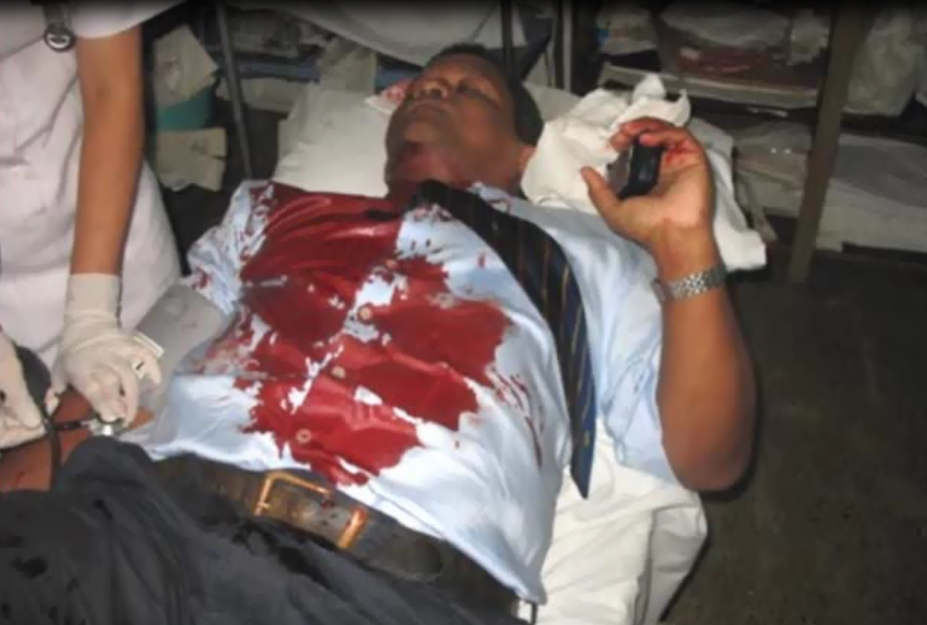A painting by Seychellois artist, Micheal
Bouchereau-Arnephie, which depicts a majestic sailfish cutting through crystal
blue waters leaving trails of tiny bubbles in its wake, its long sharp bill
pointing towards the school of mackerel it is chasing into the deep will
feature in the December/January issue of Marlin Magazine.

Bouchereau-Arnephie is the proud winner of the
"Reader's Choice" where readers and fans could vote for the favourite
paintings by liking the entries on Marlin Magazine’s Facebook page. The voting ended on September 30 and final results were
published Friday evening. The Seychellois artist emerged as the winner of the
‘Reader’s Choice’ ahead of 68 other talented artists who submitted their work
for the Marlin Magazine’s 2015 Marlin Offshore Art Gallery competition.
The online voting attracted some prominent artists such as
Carey Chan, Bodo Muche, Dennis Friel, Marty Wilson, David Webster, Peter Agardy
amongst others.According to the Secretary of the Seychelles Sports Fishing
Club (SSFC), Grant Heyer, Bouchereau-Arnephie’s painting got 2836 votes for
which were 350 votes more than his closest rival.
It is to be noted that the ‘Sailfish Mackerel Hunt’ chosen
by the judges at Marlin Magazine to enter into the reader’s choice award was
one of three artworks he had submitted for consideration.
“I knew that I was ahead by around 350 votes but it had to
be confirmed by Marlin Magazine themselves,” Bouchereau-Arnephie told SNA in an
interview.

In a previous interview Bouchereau Arnephie, also a keen
sports fisherman, had told SNA that he was encouraged by Heyer, the secretary
of SSFC’s of which he is also an executive committee member to submit an
artwork for the competition.
“Obviously I feel very honoured and proud not just for
myself but for SSFC and Seychelles in general. Its good exposure globally for
Seychelles,” said the artist now that he is the proud winner.
Sharing Bouchereau-Arnephie’s success Heyer told SNA that
SSFC is very excited now that Seychelles is home to the 2014 Marlin Magazine
Reader's Choice Award adding that the sports fishing organization supports all
efforts to help promote Seychelles in a positive way and to help get worldwide
exposure for the Indian Ocean archipelago.
"Our hope is that as a result of this, some of those
who voted have researched Seychelles further and come and visit on their
holiday" said Heyer.
"We do feel there will be benefits to Seychelles in
other sectors of the economy as a result of this - mainly increased exposure
for potential tourist arrivals."
Marlin Magazine has an estimated readership of more than
400,000 people and an online subscribers of over 280,000 people.
There is a keen interest in deep sea fishing in Seychelles
and it is hoped that the painting of the Seychellois artist in its
December/January issue will give further boost to this type of fishing.
Hailing from Anse Boileau, in the west coast of the
Seychelles main island of Mahé Bouchereau-Arnephie worked for a while as a
freelance fashion designer in Melbourne, Australia.
Returning to Seychelles in 2001 he started his own company
named Hi-Tech Graphics, working on branding for several well-known local
brands.
Having won Marlin Magazine’s Readers Choice
Boucherau-Arnephie is anticipating a future participation in the online
competition.
“This particular competition is a yearly event by next year
I might have a better one and more to show. Because of the subject matter, Marlin Magazine is the perfect publication to
associate my kind of art,” he said.
Source: Seychelles News Agency































